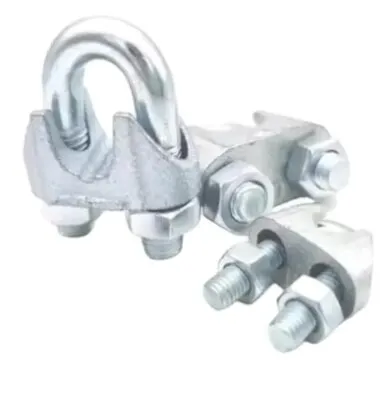নভে. . 01, 2024 13:35 ফিরে তালিকায়
How to Choose the Right Hex Nut for Your Application: Size, Material, and Strength
Hex nuts are essential components in various mechanical assemblies, but selecting the right one for your specific application requires consideration of factors like size, material, and strength. Whether you're working on a heavy-duty construction project or a smaller DIY task, choosing the right hex nut can significantly affect the durability and security of the fastening system.

Understanding Metric Nut Sizes for Precision
When selecting a hex nut, it’s essential to understand the available metric nut sizes. These sizes are crucial for ensuring that your nut and bolt fit together perfectly, as an incorrect size can lead to poor performance and even structural failure. Metric sizing is commonly used in many industries worldwide, especially in automotive, construction, and machinery sectors. The size is determined by the diameter and thread pitch of the nut, so always make sure your hex nut matches the corresponding bolt or screw.
For instance, fine thread nuts are often used when you need more precision in tightening, such as in aerospace or high-performance automotive applications. The finer threads allow for more turns per inch, giving you tighter control over how much the nut is tightened.
Choosing the Right Material for Strength and Durability
The material of a hex nut plays a vital role in its overall strength, durability, and resistance to environmental factors. For projects that require additional resistance to corrosion, stainless steel is a popular choice, while more cost-effective options like zinc-plated steel can work well in less demanding environments. For high-stress applications, it is critical to choose materials that can withstand the forces applied to them.
When working with manufacturers, pay attention to the hex nut bolt manufacturer specifications. Different manufacturers offer varying grades of hex nuts, and you should ensure that the one you choose is rated for the load and environment it will face.
Hex Nut Torque Chart: A Key Tool for Installation
One of the most overlooked aspects of hex nuts is the torque required for proper installation. Using a hex nut torque chart ensures that you apply the correct amount of torque to secure the fastener without over-tightening or under-tightening it. Over-tightening can cause the threads to strip or the fastener to fail, while under-tightening may result in the nut loosening over time.
When working with hex nylock nuts, which come with a nylon insert to prevent loosening due to vibration, referring to a torque chart is especially important. These nuts provide extra security in dynamic environments, such as in machinery or automotive assemblies, but they also require specific torque to function correctly.
The Benefits of Fine Thread Nuts in High-Stress Applications
In certain applications, fine thread nuts offer superior performance compared to their coarse-threaded counterparts. Fine threads allow for more engagement between the nut and the bolt, which can be beneficial in high-stress environments where vibration or pressure might otherwise cause a coarser thread to loosen. For example, industries like aerospace or precision engineering often require the tighter fit and greater tensile strength that fine thread nuts provide.
Additionally, fine threads can also distribute loads more evenly across the threads, making them ideal for applications where safety and stability are critical. However, it's essential to note that fine-threaded nuts may take longer to install due to the increased number of turns required. Be sure to weigh the benefits of precision against the potential increase in installation time.
Hex Nylock Nuts: Preventing Loosening in Vibration-Prone Environments
For applications that are subject to high levels of vibration, such as engines or industrial machinery, the hex nylock nut is an excellent choice. These nuts feature a nylon insert that creates friction with the bolt threads, preventing the nut from loosening over time. This design is particularly useful in automotive and heavy machinery industries where fasteners are exposed to constant movement.
Compared to standard hex nuts, hex nylock nuts offer an added layer of security without the need for additional locking devices like washers. They are especially beneficial in situations where the fastener will experience dynamic loads, as the nylon insert maintains its grip even in conditions that would cause a standard nut to vibrate loose.
Choosing the right hex nut for your project involves careful consideration of factors like size, material, and torque requirements. Metric nut sizes are essential for ensuring a proper fit, while the material you select will determine the nut’s strength and resistance to environmental conditions. Referring to a hex nut torque chart can help you apply the right amount of force during installation, and using specialized options like hex nylock nuts and fine thread nuts can provide additional security in vibration-prone or high-stress environments.


